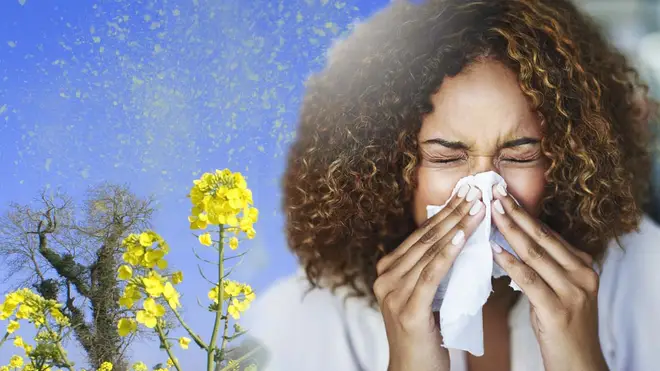Can hay fever give you a cough and sore throat? Symptoms to look out for
4 June 2020, 15:11

As we enter hay fever season, we take a look at the symptoms and treatments you can turn to if you're suffering.

Dr Hilary explains the difference between hay fever and coronavirus symptoms
Hay fever gets worse for suffers between March and September, and especially when the weather gets hotter.
If you get hay fever regularly, or you're starting to suffer from it this year, it's important to know the symptoms.
The NHS list hay fever symptoms as:
Sneezing and coughing
A runny or blocked nose
Itchy, red or watery eyes
Itchy throat, mouth, nose and ears
Loss of smell
Pain around your temples and forehead
Headache
Earache
Feeling tired

They state that people with asthma may also get a tight chest, be short of breath or have a wheeze and cough.
While colds pass in a matter of weeks, hay fever can stick around for weeks to months.
When it comes to treating hay fever, there is not a cure and it cannot be prevented unfortunately.
However, there are ways you can help to ease the annoying symptoms that come with hay fever.
The NHS suggest putting vaseline around your nostrils to trap pollen, wearing wraparound sunglasses to stop follow getting into your eyes, showering and changing clothes after you've been outside and staying indoors when possible.

They also recommend keeping windows and doors shut when you can, vacuuming regularly and dusting around the house with a damp cloth.
Lots of people also turn to antihistamine drops, tablets and sprays to help ease the symptoms, something you can speak to your GP about.
READ MORE: Heatwave set to end as arctic blast and thundery downpours hit Britain































